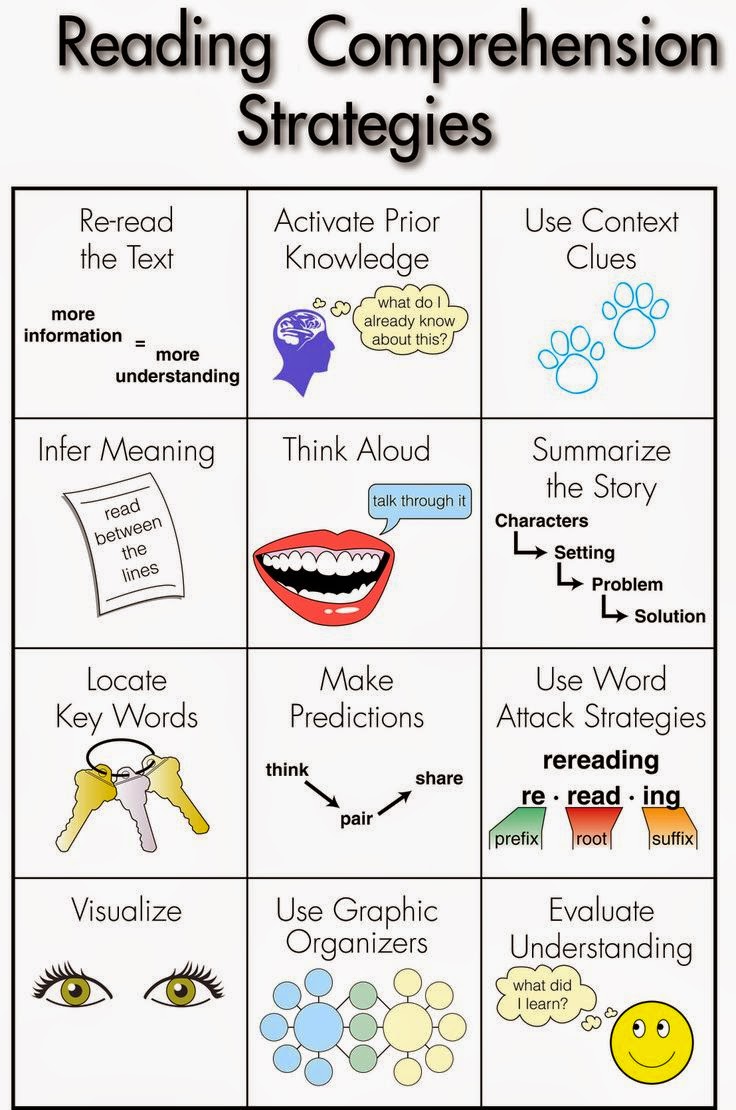In a world overflowing with information, the ability to read effectively is less of a luxury and more of a necessity. But it's not just about recognizing words; it's about extracting meaning, drawing connections, and engaging critically with the text. That's where reading strategies for comprehension come in, offering a toolkit to transform your relationship with reading.
Imagine trying to navigate a new city without a map. You might eventually stumble upon your destination, but the journey would be filled with wrong turns and wasted time. Reading without a strategy can feel similar – a lot of effort with minimal understanding. Reading strategies act as your navigational guide, providing a roadmap to navigate complex texts and unlock their full meaning.
The concept of reading strategies isn't new. Educators and reading specialists have long recognized that effective reading is an active process. From the basic skill of previewing a text to the more advanced technique of annotation, these strategies provide a framework for actively engaging with the material. However, the digital age has brought a new urgency to these strategies. We're bombarded with information daily, and the ability to quickly and effectively comprehend this information is crucial.
One of the main issues surrounding reading strategies is the misconception that they are only for struggling readers. This couldn't be further from the truth! Just as a seasoned athlete benefits from targeted training, even proficient readers can enhance their comprehension, retention, and enjoyment of reading through the deliberate application of these strategies.
Another challenge is the sheer number of strategies and the lack of a one-size-fits-all approach. The most effective approach is to develop a repertoire of strategies and learn to adapt them based on the type of text, purpose of reading, and individual learning style. It's about becoming an active and strategic reader, equipped to tackle any reading challenge with confidence and skill.
Advantages and Disadvantages of Reading Strategies
While the benefits of using reading strategies are numerous, it's also essential to be aware of potential drawbacks, especially when strategies are not applied thoughtfully.
| Advantages | Disadvantages |
|---|---|
| Improved comprehension and retention of information | Can be time-consuming initially, especially when learning new strategies |
| Enhanced critical thinking and analytical skills | May feel mechanical or forced if not integrated naturally into the reading process |
| Increased engagement and enjoyment in reading | Effectiveness can vary depending on the type of text and individual learning style |
| Improved academic and professional performance | Requires consistent effort and practice to master and apply effectively |
Best Practices for Implementing Reading Strategies
Successfully incorporating reading strategies into your reading routine requires a mindful and personalized approach. Here are some best practices to guide you:
- Know Your Purpose: Before reading, define your goal. Are you reading for pleasure, to learn something new, or to complete an assignment? Your purpose will influence which strategies you prioritize.
- Preview the Text: Don't dive in blindly! Skim the headings, subheadings, images, and captions to get a sense of the overall structure and key topics covered.
- Active Reading is Key: Engage with the text by highlighting key points, taking notes in the margins, and asking questions as you read. This transforms you from a passive observer to an active participant.
- Find Your Strategy Suite: Experiment with different strategies like summarizing, visualizing, or connecting to prior knowledge to discover what works best for you and the specific reading material.
- Regular Practice is Crucial: Consistent practice is essential for mastering any new skill. Set aside dedicated reading time and make a conscious effort to apply the strategies you are learning.
By embracing these best practices and committing to consistent effort, you can transform your approach to reading and unlock a world of knowledge and understanding.
Reading strategies are essential tools for unlocking the true potential of reading. They empower us to move beyond passively consuming words to actively engaging with ideas, extracting meaning, and forging deeper connections with the text. By incorporating these strategies, we enhance our comprehension, boost our critical thinking abilities, and ultimately cultivate a more enriching and rewarding reading experience. So, embark on your reading journey equipped with these powerful tools, and watch as the world of knowledge unfolds before you.
Rite aid pharmacy new oxford
The soundtrack of now exploring tiktoks viral music scene
Enhanced bathroom safety finding grab bar installation experts near you
Learning to Read: Reading Strategies - Khao Tick On
4th Grade Reading Skills Checklist - Khao Tick On
How To Help Students With Comprehension - Khao Tick On
reading strategies for reading comprehension - Khao Tick On
Focus on Fluency using Partner Plays {Multiple FREEBIES!} - Khao Tick On
reading strategies for reading comprehension - Khao Tick On
Comprehension Strategies For 5th Graders - Khao Tick On
Visualising Comprehension Strategy Activities - Khao Tick On
Reading Strategies That Repair Comprehension and Empower Students - Khao Tick On
Pin on KWL Charts - Khao Tick On
Printable Reading Strategies Chart - Khao Tick On
Reading Strategies Free Posters - Khao Tick On
Kindergarten Reading Comprehension Strategies - Khao Tick On
Printable Reading Comprehension Strategies Web Check Out Our Reading - Khao Tick On
Highly Effective Dyslexia Interventions and Programs Dyslexia - Khao Tick On












